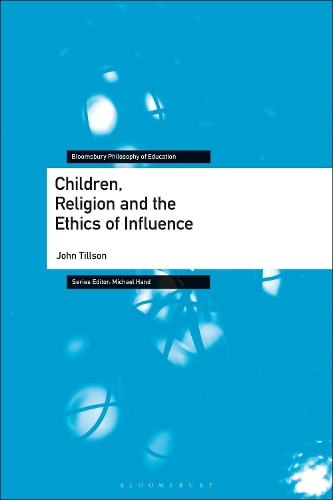
Children, Religion and the Ethics of Influence
(Hardback)
Available Formats
Publishing Details
Children, Religion and the Ethics of Influence
By (Author) John Tillson
Bloomsbury Publishing PLC
Bloomsbury Academic
13th June 2019
United Kingdom
Classifications
Tertiary Education
Non Fiction
Ethics and moral philosophy
207.5
Physical Properties
Hardback
208
Width 156mm, Height 234mm
448g
Description
In Children, Religion and the Ethics of Influence, John Tillson develops a theory concerning which kinds of formative influence are morally permissible, impermissible or obligatory. Applying this theory to the case of religion, he argues that religious initiation in childhood is morally impermissible whether conducted by parents, teachers or others. Tillson addresses questions such as: how we come to have the ethical responsibilities we do, how we understand religion, how ethical and religious commitments can be justified, and what makes children ethically special.
Reviews
I appreciate the emphasis on influence here as it so directly raises the question of the ethics of justification. In this sense, I find Tillsons approach extremely engaging ... [The book] provides a vital discussion of questions of influence and its justification. * Philosophy of Education Society of Great Britain *
An almost universal assumption is that forming childrens religious identity is something that adults permissibly do as parents, religious teachers, or the like. John Tillson argues with great force and ingenuity that this is simply a huge moral mistake. Tillsons prose is a model of clarity, and though there is much here to interest scholars in the area of childrens rights, the book is accessible to anyone who cares about the questions it raises and is ready to consider the subversive answers it gives. This is a brilliant and provocative book. * Eamonn Callan, Professor Emeritus of Philosophy, Stanford University, USA *
A detailed, closely argued, and richly resourced contribution to the philosophy of education. Tillson provides a carefully constructed, comprehensive, and analytically rigorous rebuttal of the view that it is morally permissible to attempt to instil religious beliefs in children. This is a work that is stacked full of interesting and controversial arguments, from questions about well-being and the moral responsibilities of parents, to arguments for and against the existence of a deity. The upshot is an exciting and ingenious intervention into the live moral and political debate surrounding the appropriate role of parents, teachers, and other educators with regard to religious belief and worries about indoctrination. * David Stevens, Associate Professor in Political Philosophy, University of Nottingham, UK *
The belief that parents have a right to raise their children within a religious tradition be it in school or outside is widely assumed to be correct. But is it John Tillson presents a careful, well-crafted case for a conclusion many will find a shocking. Tillson has the virtue of writing in an engaging, accessible way. This is a valuable contribution to an important debate. It is a book that nicely illustrates how analytic philosophy can both effectively challenge received wisdom and generate conclusions that have significant, real-life consequences. * Stephen Law, Reader and Head of the Department of Philosophy, Heythrop College, UK *
Author Bio
John Tillson is Lecturer in Philosophy of Education at Liverpool Hope University, UK.
